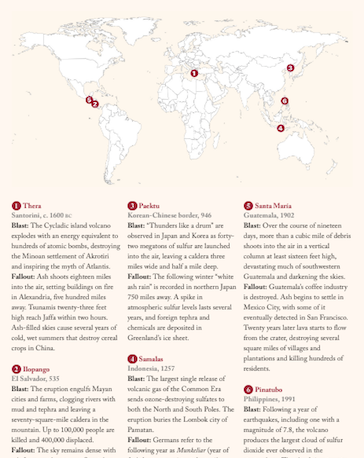Miscellany
Chinese Taoist philosophers Zhuangzi and Hui Shi took a walk on a bridge over the Hao River in the fourth century bc. “The minnows swim about so freely,” said Zhuangzi; “such is the happiness of fish.” Hui Shi responded, “You are not a fish, so whence do you know the happiness of fish?” “You are not I,” Zhuangzi replied, “so whence do you know I don’t know the happiness of fish?”
Miscellany
A growing market for ejiao—a gelatin made from donkey hide believed by practitioners of traditional Chinese medicine to increase libido and slow aging—has led to a global trade of millions of donkey skins each year. Asses are often kidnapped from rural African villages, where their labor is valued highly, then taken to markets and slaughtered for export. “The donkeys,” said a sanctuary manager while visiting a market in Tanzania, “are very stressed.”
Miscellany
A thirteenth-century Song dynasty text about commerce describes dangers faced by pearl divers, who sometimes fell prey to “huge fishes, dragons, and other sea monsters” that would rip open their stomachs or bite off their feet. A pearl was considered most valuable if perfectly round; the test was “that it will not cease rolling about all day when put on a plate.” To avoid heavy export duties, foreign traders sometimes concealed pearls in canes or umbrella handles.
Pages


